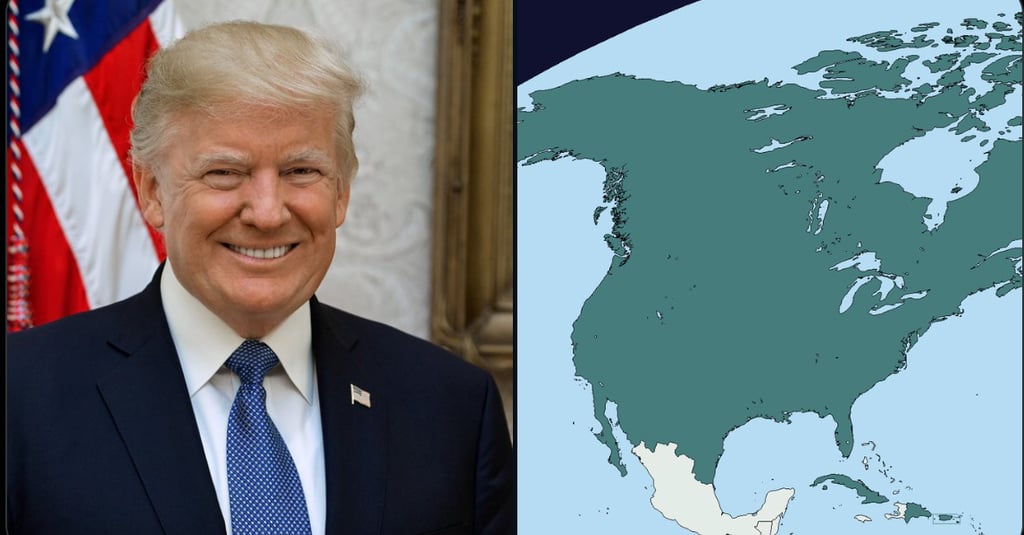Trump’s Wild Pitch: Should Canada Really Become the 51st U.S. State?
4/29/20254 min read


Trump’s Wild Pitch: Should Canada Really Become the 51st U.S. State?
Imagine waking up to a world where the U.S.-Canada border no longer exists—no more maple leaf flags flying solo, no more "eh" versus "huh," just one giant North American superpower. Sounds like a sci-fi plot, right? Well, on April 28, 2025, former U.S. President Donald Trump made headlines with a jaw-dropping suggestion: Canada should elect him and become the 51st state of the United States. Yes, you read that correctly. Trump, known for his bold and often polarizing ideas, doubled down on this notion during Canada’s federal election day, stirring up a mix of disbelief, humor, and serious debate. So, what’s behind this wild idea, and could it ever happen? Let’s dive in.
The Backstory: Tensions and Tariffs
Trump’s suggestion didn’t come out of nowhere. U.S.-Canada relations have been rocky since he returned to the White House. In February 2025, Trump imposed a hefty 25% tariff on Canadian imports, citing national security concerns like illegal immigration and fentanyl trafficking, as outlined in a White House fact sheet. These tariffs hit Canada hard—trade accounts for 67% of its GDP, and industries like steel, aluminum, and lumber felt the squeeze immediately. Trump’s rhetoric escalated when he called the U.S.-Canada border an "artificially drawn line" and proposed a merger, promising Canadians tax cuts, military protection, and economic growth with "zero tariffs" if they joined the U.S.
On March 28, 2025, Trump reportedly floated the idea directly to Canadian Prime Minister Mark Carney during a phone call. According to Live Mint, Carney diplomatically sidestepped the proposal, saying, “Let’s agree to disagree on that one.” But Trump didn’t let it go. By April 28, as Canadians headed to the polls, he amplified his message, framing Canada as a “cherished 51st state” that could quadruple its economic power by joining the U.S. The timing couldn’t have been more charged—Canada’s election was already a battleground of national pride, with Carney’s Liberals riding a wave of defiance against U.S. influence, as noted by LabourList.
The X Post That Sparked It All
The idea gained traction online when @cocodrippzz shared a vibrant graphic on X, featuring Trump’s image alongside a fiery caption: “Did Trump just suggest that Canada should elect him and become the 51st state him and DAY?” The post included a screenshot of Trump’s alleged statement, promising to “cut your taxes in half, increase your military power, for free,” and eliminate borders entirely. The X post quickly went viral, racking up comments ranging from sarcastic quips (“Guess I’ll start saying ‘y’all’ now ”) to heated debates about sovereignty. It’s no surprise the post caught fire—Trump’s suggestion tapped into deep-seated fears and aspirations on both sides of the border.
Why This Idea Is So Polarizing
On one hand, Trump’s pitch has a certain economic allure. The U.S. is a global powerhouse, and joining forces could mean access to larger markets, stronger military protection, and potentially lower taxes. Imagine Canadian businesses like Bombardier or Tim Hortons operating tariff-free across a unified North America. Trump’s vision of a borderless continent might even appeal to those frustrated by trade barriers.
But here’s the flip side: Canada’s identity is rooted in its independence. From universal healthcare to multiculturalism, Canadians pride themselves on being distinct from their southern neighbor. Conservative leader Pierre Poilievre captured this sentiment at a February rally, declaring, “We will never be the 51st state,” a stance echoed by many Canadians, per Newsweek. The idea of surrendering sovereignty to a country with a vastly different political system—think gun laws, healthcare, and foreign policy—feels like a betrayal of Canadian values. Plus, Trump’s tariffs are widely seen as economic bullying, not a friendly invitation to merge.
Could It Ever Happen?
Realistically, no. Canada becoming a U.S. state would require monumental legal, political, and cultural shifts. Both countries would need to amend their constitutions, and public support would have to be overwhelming—something polls suggest is nowhere close. A 2025 Guardian report noted a surge in Canadian national pride amid Trump’s provocations, with Carney’s Liberals gaining ground by positioning themselves as defenders of sovereignty. Meanwhile, Americans might not be thrilled about absorbing a new state with its own set of demands, like bilingualism or socialized medicine.
Still, Trump’s suggestion isn’t just a random outburst—it’s a strategic move to pressure Canada into trade concessions. His tariffs are a bargaining chip, and the “51st state” idea keeps the conversation on his terms. It’s classic Trump: bold, brash, and designed to dominate headlines.
What’s Next for U.S.-Canada Relations?
As Canada’s election dust settles, the question remains: how will this rhetoric shape the future? Trump’s tariffs are already straining cross-border trade, and his comments have deepened mistrust. Yet, both nations rely on each other—think energy pipelines, shared defense through NORAD, and cultural ties like hockey and Hollywood. Finding a balance between cooperation and independence will be key, but Trump’s shadow looms large.
So, what do you think? Could Canada and the U.S. ever become one nation, or is this just another Trumpian fever dream? Should Canada consider closer economic ties, even if it means compromising some autonomy? And how far will Trump push this idea in the coming years? Drop your thoughts in the comments—I’d love to hear your take on this wild chapter in North American history!
Photo Credit:GettyImage
hello@boncopia.com
+13286036419
© 2025. All rights reserved.